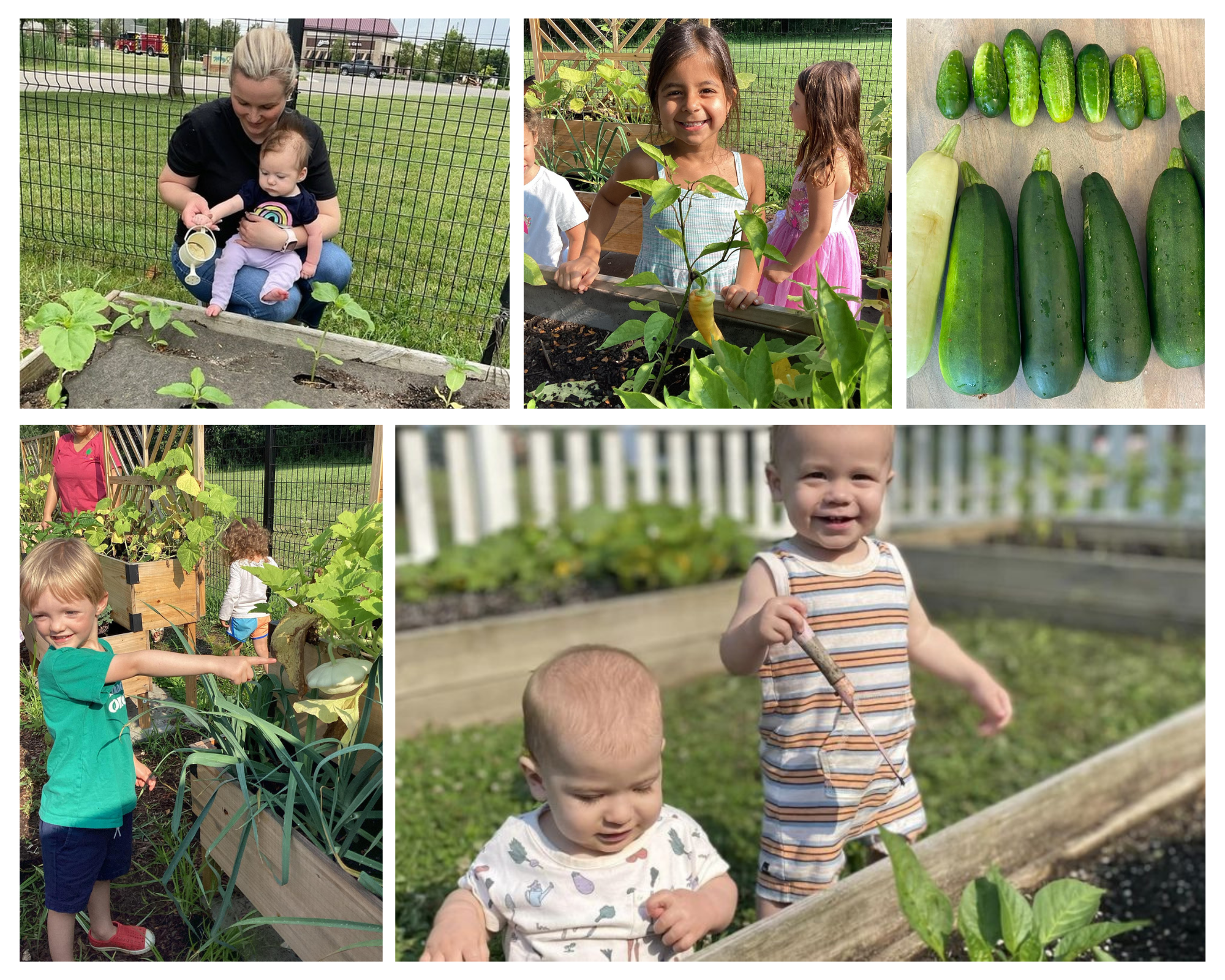Planting a home garden with your little one is not only a fun and rewarding experience, but it offers multiple benefits that help enrich their learning, development, and relationship with food. And it doesn’t need to be difficult to start up!
Something as simple as planting a few herbs in a pot indoors and watching them grow can be a great introduction to the world of gardening while exposing kiddos to new foods—no “green thumb” required! Come along as I take you through the three key benefits of gardening with your kids, plus a few tips on what you need to get started!
1. It supports food literacy skill development
Gardening is a fantastic way for kids to develop their food literacy– a crucial life skill that includes understanding where food comes from, how it is grown, and how to prepare and enjoy it for nourishment. This knowledge is essential for fostering a connection to the food they eat and appreciating the journey it takes from seed to plate.
Throughout the growing season, your child can observe the seeds they plant transform into mature plants. Watching their plants grow week-by-week (with the proper care and watering!) helps them realize the effort and patience involved in growing food. As an aside, you can also talk about the important role that farmers play in feeding people around the world.
This hands-on experience teaches kids that growing food requires time and care, which can foster a greater appreciation and connection to the food they eat. (This can sometimes translate into less food waste! Win-win!)
2. Encourages curiosity and food exploration
From smell, to touch, to taste…gardening engages all of your child’s senses! It also provides a fun way for your children to ask questions about plants, insects, and nature around them. This helps foster a deeper level of understanding around food cultivation and ecosystems involved in its growth!
A potential bonus? The wonderful thing about involving kids in growing their own food (vegetables, let’s say) is they’re much more likely to eat them, whether it’s straight off the plant or incorporated into a family meal! This can come in handy, especially for more cautious or “picky” eaters.
3. Boosts Emotional and Mental Well-being
Nurturing plants from tiny seedlings brings children a sense of accomplishment and responsibility. As kids grow, their need for independence and autonomy also grows. Gardening tasks like watering, weeding, and caring for plants help fuel this need and provide a sense of accomplishment as they see their efforts come to fruition!
Gardening is also a beautiful way to get children (and adults alike!) to spend time outdoors, and connect with nature, which promotes overall well-being.
The process of gardening requires a lot of patience, and regular care for the plants to grow. This helps to teach kids the value of being patient and nurturing living things. Eventually, they get to enjoy the mature vegetables that started out as tiny plants!
Not only does gardening provide opportunities to build emotional and mental fortitude, but it is also an excellent opportunity for quality bonding time. Working together to grow a few small plants may seem like an insignificant thing, but over time it builds lasting memories that strengthen family bonds, encourages learning, and promotes a deeper connection to food and nature!
Quick Tips to Start Gardening
Having a few basic tools and keeping things simple to start will allow you to set up an at-home gardening experience that provides growth and learning opportunities for your children without putting in too much work.
- Start Small: Begin with a small project, such as planting herbs or a few vegetable seeds in pots. You can also buy already growing potted vegetable plants (such as tomatoes, peppers and cucumbers) at your local garden center.
- Choose Easy-to-Grow Plants: Choose plants that are known to be resilient and easy to grow such as tomatoes, sunflowers, zucchini, green beans, carrots and radishes. These plants are hardy and require minimum maintenance, ensuring a high success rate—which helps encourage young gardeners and their efforts!
- Use Child-Friendly tools: This allows your child to be more hands-on with helping plant and water the garden, making it more enjoyable! Most gardening centers will have child-sized gardening gloves and small gardening tools for kids like plastic hand rakes, shovels, and watering cans. Amazon also carries great options including this gardening set for kids that you can have delivered straight to your door!
Bottom Line
Gardening with your little ones can be a fun and rewarding way to enrich their learning, development, and relationship with food. It helps kids develop food literacy by understanding where food comes from and how it’s grown and nurtures their curiosity and willingness to try new foods. Plus, it boosts their emotional and mental well-being by developing a sense of accomplishment and connection to nature.
I always recommend starting small with easy-to-grow plants and child-friendly tools and enjoying the quality bonding time and lasting memories you create together. I hope you give this a try and watch your child grow alongside the plants they nurture!

